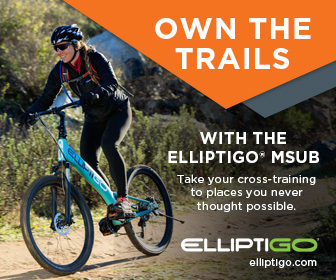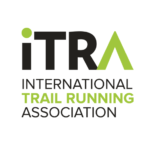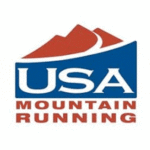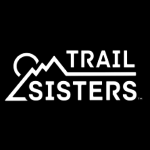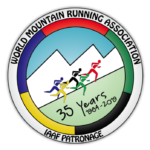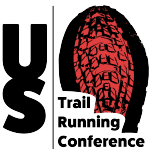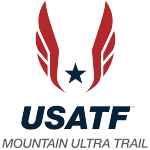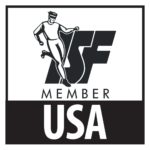
Yesterday, the ninth annual US Trail Running Conference kicked off for the second year in a row in Fayetteville, Arkansas, with a theme for 2021: “Trail Running as a Restorative Sport.” Attendees included trail running race directors and fans of the sport who enjoyed content in-person or virtually.
Taking place at the Fayetteville Town Center, this year’s conference used live-streaming sessions as well as in-person panel discussions and presentations. Located on the beautiful Downtown Square, this “Trail Town” venue features nearby trails in the Ozark mountains, restaurants and Fayetteville’s largest hotel all within walking distance.
Wednesday marked the first of three days of presentations and discussions geared to trail race directors. The day started with a Native American opening ceremony to celebrate the history of the Cherokee Nation and other Native American groups in the Fayetteville area presented by Tim Steen. Following the ceremony, Conference director Terry Chiplin welcomed attendees who introduced themselves and shared their reasons for being at the Conference this year.
“I love the opportunity to network and to be around people that all have the same common denominators. I look forward to talking to everyone!” – Paulette Odenthal, RRCA Representative, MN Trail Runners and trail race director.
“It’s so great to be back together at the conference in person after months and months of Zoom calls. I’m looking forward to the group runs as well. The best and most meaningful conversations I’ve had have been when running on the trails with others.” – Jay Kelley, UltraSignup, Nashville, TN.
“It’s nice to be at a conference that specializes in the work I do for the Parks and Recreation commission, which is mostly race events.” – Victoria Nagel, Race coordinator for the Charleston County Park System Charleston, SC.

Conference director Terry Chiplin (center). Photo: Peter Maksimow.
Chiplin then gave an opening address, live-streamed via Zoom, for both virtual and in-person attendees.
“All of you are in the business of changing people’s lives. By organizing a race you are empowering millions of individuals to challenge themselves, empowering them to set goals, train, take care of their health and well-being, to support others, and to deeply connect with the “multitudinous” beauty and inspiration of the natural world.”
In line with the day’s focus “Climate and Sustainability,” Chiplin’s address invited race directors to commit to a “zero carbon” initiative to reduce the impact of trail running events on the environment.

Clare Gallagher giving her virtual keynote address. Photo: Peter Maksimow.
This was followed by the keynote address from professional trail runner and environmental activist, Clare Gallagher, “Our sport is growing. We have thousands of new trail runners and with this comes more responsibility from the business side. We have more social media, live-race tracking, endless gear buying options, we can travel thousands of miles to run a trail race. A lot of us here make a living from this sport, but we still have this choice about what we want our sport to be like in the future. How do we want it to grow? Do we want to grow for the externalities of our sport? Or do we want to grow the core, the basic reasons why we run in the first place and the foundation of what allows us to do this sport?”
Gallagher centered her comments on reconnecting with trail running as a restorative sport to strengthen our communities and the environment and concluded her speech with some thought-provoking questions for the audience:
“Are we protecting nature? Are we protecting our trails? Are we giving back to the communities that provide us these trails? Are we being as inclusive as possible, so that as many types of people as possible can experience this sport? Are we growing this sport in a sustainable way? I look forward to seeing what comes out of this conference and I hope to see you all on the trail soon!”

Paul Jurasin leading group exercises. Photo: Peter Maksimow.
Following a brief networking opportunity, Paul Jurasin, educator and Director of New Programs for Information Technology Services at Cal Polytechnic State University based in San Luis Obispo, CA, gave a presentation on sustainable innovation for trail races entitled: “How Might We Reduce Carbon, Reduce Waste and Increase Diversity in Trail Running.” Jurasin explained how to use “Future and Design Thinking” techniques to problem solve and generate innovation.
These methods have been used in his work to help solve problems for nonprofits such as the World Bank, governmental agencies, such as the US Government, California Highway Patrol or City of San Francisco and educational institutions including Cal Polytechnic State University and Fresno State University. Jurasin explained three key goals to this innovation technique:
- Think Differently
- Explore the “Art of the Possible”
- Change the Culture
During his two and a half hour interactive presentation, Jurasin facilitated several group exercises including a twenty minute long “Signals and Drivers” exercise that encouraged the audience to “Identify signals of change for the future of trail racing” and “Identify drivers for the signals of change (the underlying causes of the change)” on both the topics of climate change and diversity related to trail running.
A key takeaway for trail race directors from Jurasin’s presentation was how to instill a culture of innovation. “Think big,” said Jurasin. “It’s good to think out of the box. The world changes so fast and ideas that seem grand now, might not be so far and out of reach in the future. Start thinking big!”

Terry Chiplin leading discussions with in-person and virtual panelists. Photo: Peter Maksimow.
Attendees were then treated to a lunch break where Food Loops, a local Fayetteville company dedicated to reducing food waste, ensured that the meals were 95% waste free. Plates, silverware, cups and food waste were all separated into containers for reuse or recycling.
Following the lunch break was a session on “Liability and Cancellation Insurance for Events” presented by Nathan Nicholas of the Nicholas Hill Group. The audience was introduced to the American Trail Running Association’s Trail Running Insurance Program (T.R.I.P.) designed to cover traditional in-person events, as well as virtual events.
Nicholas said about the uniqueness of the program, “Although there are other options available, ATRA is the only national organization dedicated solely to the growth and success of trail running in the US. With this mission in mind, they have helped design a custom, trail race focused insurance program.”
Nicolas explained the benefits of race coverage, including avoiding lawsuits and securing sponsorship deals. Nicholas also introduced their cancellation coverage for both traditional and virtual events. “We saw more cancellations this year than ever before.” said Nicholas “The main cause being forest fires (and poor air quality), but also landslides, hurricanes and other concerns related to climate change.”
Learn more about ATRA’s trail race insurance coverage on this website.

Conference attendees inside Fayetteville Town Center. Photo: Peter Maksimow.
The first panel discussion of the conference was on “Moving the Sport To Zero Carbon.” Speakers included Shelley Villalobos, Council for Responsible Sport, David Callahan, UltraSignup, and Claire Lafave, Manager of Client Strategy at Native, who develop climate intervention projects to help companies meet their climate goals. Villalobos, in pre-recorded comments reported recent research findings that 98.5% of a mass participation event’s carbon footprint comes from event-related travel by participants. Only 1.5% accounts for other environmental impacts such as food waste, water usage, electricity, merchandise, etc.
Lafave encouraged race directors to look more closely at measuring their event’s carbon emissions and thinking about using carbon offset projects to balance these emissions. “I see a great opportunity here from the trail running community, who so loves the natural world, to crowdfund nature-based carbon offset projects that support local climate mitigation and nature preservation simultaneously.”
Lafave continued to explain that hesitance to carbon offsets comes from a misunderstanding of thinking of it as something negative, “This is about contributing to a specific project together through a contribution to something great, versus a calculation to counter something bad.”
Callahan continued this discussion by explaining how his race platform, UltraSignup, could educate more runners about carbon offsets and be used to collect donations. “We realized that UltraSignup is in a unique position to help reduce some of the friction surrounding carbon offsets during the registration process. Registrants know how far they’re traveling for the race and they have the opportunity to add carbon offsets to that transaction.”
Callahan also stressed the importance of making sure that carbon offsets are presented in a positive way so that they are better received by the trail running audience, “I’d like race directors to know that we don’t want to be making runners feel guilty about their carbon emissions from participating in a race/traveling to an event, but we also want to give you the ability to be educated and make the decision yourself.”
According to The Council For Responsible Sport’s latest research, adding only $3.80 per participant to registration costs could achieve carbon neutrality for most trail running events.

The 2021 conference theme: Trail Running as a Restorative Sport. Photo: Peter Maksimow.
“Producing Successful Sustainable Trail Races — Focus On Waste and Social Sustainability” was the topic for the day’s final panel. Speakers included Steven Aderholt, freelance race director and founder of the Ragnar Trail series, Bruce Rayner, Chief Green Officer of Athletes for a FitPlanet, Celia Santi, Senior Brand Experience Manager at GU Energy Labs, and Peter Nierengarten, Fayetteville Environmental Director.
Nierengarten shared his insights into planning an event’s sustainability plan, “Know the waste disposal and recycling resources in your area. Fundamental in the planning is understanding the local ability to depose and process your waste.” Reach out to the city, waste management centers, and how they can help you.”
Rayner added to this discussion, “Your waste service provider should be your best friend. You should be working with them early on to figure out what can be recycled or composted. This can differ greatly from city to city or town to town.”
The discussion shifted to the topic of how to deal with waste from trail races, such as single-serve wrappers, and how this has been affected by the COVID-19 pandemic. “With food especially, waste has gone up. Most events provide packaged or repackaged foods in single-serving plastic bags. Aid station food waste has definitely increased.” said Aderholt.
Santi shared her experience partnering with TerraCycle, an organization that aims to achieve zero waste through giving waste products “second lives.”

The author writing the article you are currently reading. Photo: Peter Maksimow.
Day one of the 2021 US Trail Running Conference concluded with a networking evening including light appetizers and drinks from local craft breweries. A virtual network video room was offered on the conference app through Socio, for virtual participants to connect with colleagues and network from across the US.
Stay tuned for more highlights from day two of the conference, which will be published on Friday. More photos from day 1 of the conference are available on Peter Maksimow’s Google Photos album. You can also follow our hour-by-hour coverage on the conference on Twitter, Instagram and Facebook.


